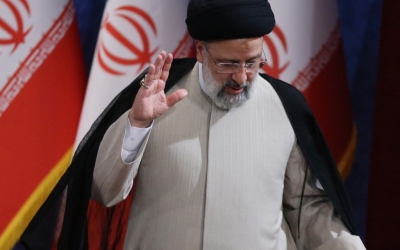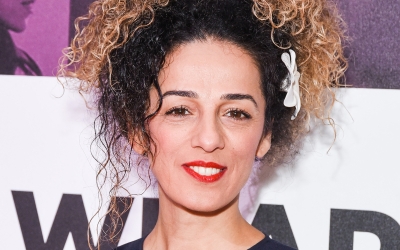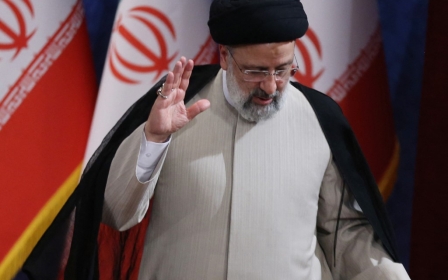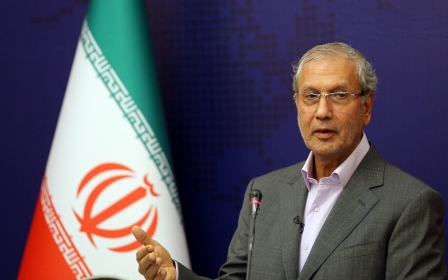Iran nuclear talks will not resume until after Raisi takes office, US officials say
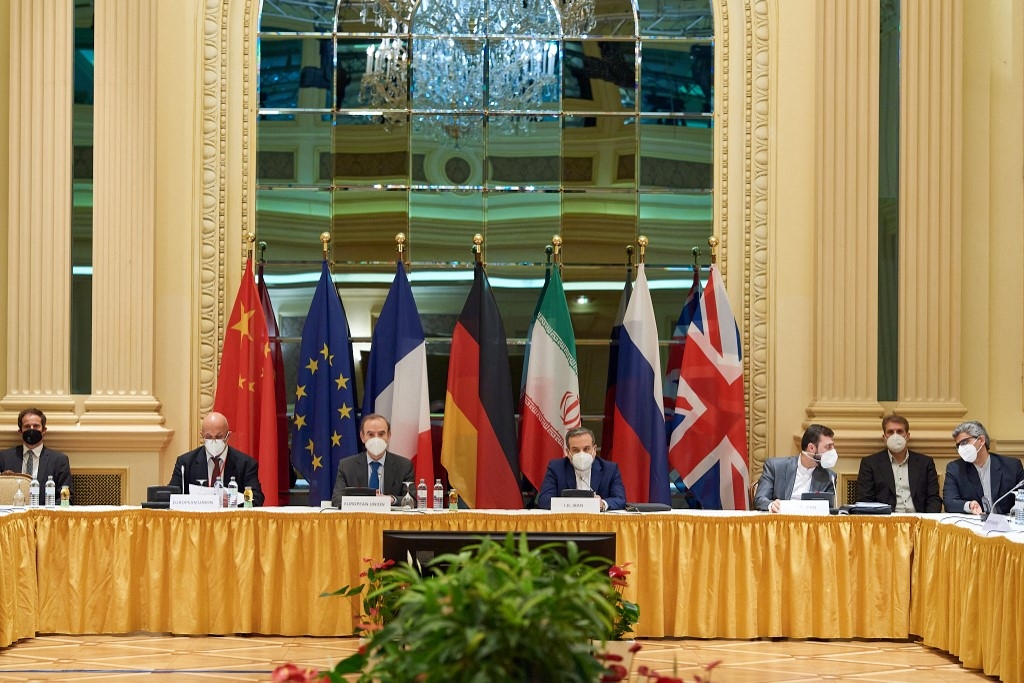
Iran does not plan on returning to nuclear deal negotiations until a new government headed by President-elect Ebrahim Raisi takes office in August, US officials have said.
While the US and European partners are ready to enter the seventh round of negotiations in Vienna, Iranian authorities would hold off until next month's swearing-in of the new conservative administration, officials told the Washington Post on Wednesday.
"They are not prepared to come back before the new government," a diplomatic source told the Reuters news agency.
"We are now talking probably not before mid-August," added the source.
The Vienna talks, which began in April, have seen all the signatories of the 2015 nuclear agreement - known as the P5+1, which includes the US, the UK, France, Germany, Russia and China - come together for renewed negotiations.
On Thursday, Iranian media reported that Raisi's foreign policy team had already effectively taken charge of Iran's negotiating committee.
Earlier this week, Iranian Foreign Minister Mohammad Javad Zarif shared a letter attached to a 262-page report to parliament about the nuclear deal, writing that he was "now on the verge of handing over responsibility to new brothers and sisters".
He urged the incoming administration to find a path back to the terms of the 2015 deal and reach an agreement with world powers in Vienna.
"If the US restores the nuclear deal, a successful outcome from the current talks in Vienna would be achieved," Zarif wrote in this letter.
Meanwhile, reports indicate that officials in the Biden administration have grown impatient with the pace of the negotiations and are becoming concerned that they could drag on indefinitely.
'We are ready when Iran is'
On Wednesday, US State Department spokesman Ned Price warned there could be a point of no return, and stressed the importance of working to reach an agreement.
"This process is not indefinite," Price said. "There will come a point where our calculus will change, where the gains that Iran is able to make in its nuclear programme, the benefits it accrues might one day outweigh the benefit that the international community would accrue from a mutual return to compliance with the JCPOA," he continued.
"We're not there yet, but that is why we believe we should - the international community, the United States together with our closest allies and some of our partners in the form of the P5+1 - should return to Vienna for these talks just as soon as we can."
'We are ready to go if and when the Iranians signal they are as well'
- Ned Price, State Department spokesman
Price underlined the Biden administration's willingness to immediately return to the talks.
"We are ready to go if and when the Iranians signal they are as well. And that's precisely because we want to see Iran's nuclear programme once again verifiably and permanently constrained and Iran permanently barred from ever obtaining a nuclear weapon," Price said.
Still, some US lawmakers said they were sceptical about the prospects of nuclear diplomacy with Tehran.
"It's obviously a work in progress. But it sounds like - and things can always change - it's not happening any time soon," Senate Foreign Relations Committee Chair Bob Menendez told Politico on Wednesday, after emerging from a classified Iran briefing with Secretary of State Antony Blinken.
Former US President Donald Trump withdrew from the multilateral nuclear deal in 2018, imposing a series of escalating and crippling sanctions against Tehran. Iran initially continued to abide by the deal, but after months of pressing European partners about Washington's behaviour, it began reducing some of its commitments, eventually falling out of compliance.
So far, Iran has refined uranium up to a purity of roughly 60 percent, far above the deal's limit of 3.67 percent and much closer to the 90 percent suitable for atom bomb cores.
Rising US-Iran tensions
Earlier this month the US and European powers warned Iran that its latest uranium enrichment efforts could imperil the Vienna talks, which have already seen tension caused by Iran's recent election as well as Washington's attempts to secure a prisoner swap with Tehran.
Also exacerbating tensions were reports that Iranian intelligence agents allegedly attempted over the weekend to kidnap Masih Alinejad, a journalist and campaigner against compulsory headscarves in Iran, from her New York apartment.
On Wednesday, Price said that while nuclear negotiations were being viewed diplomatically as an issue separate from such incidents, the international community would likely benefit more broadly following a nuclear accord.
However, Congressman Michael McCaul, the top Republican on the House Foreign Affairs Committee, warned Washington should not make any deals with Iran given the alleged kidnap plot.
"This is a regime that holds American hostages and is actively trying to kidnap an American from the streets of New York," McCaul said in a statement.
"President Biden should not enter into any deals with Iran without an end to these assaults on our citizens."
While the Biden administration has vowed to work towards renewing the nuclear deal and has indicated a willingness to move away from the strictly "compliance for compliance" negotiation structure it initiated with, it has also made clear that some US sanctions are here to stay.
UN Secretary-General Antonio Guterres, however, has asked Washington to reconsider, urging the US to lift or waive all sanctions on Iran as agreed under the 2015 JCPOA deal.
Middle East Eye propose une couverture et une analyse indépendantes et incomparables du Moyen-Orient, de l’Afrique du Nord et d’autres régions du monde. Pour en savoir plus sur la reprise de ce contenu et les frais qui s’appliquent, veuillez remplir ce formulaire [en anglais]. Pour en savoir plus sur MEE, cliquez ici [en anglais].


